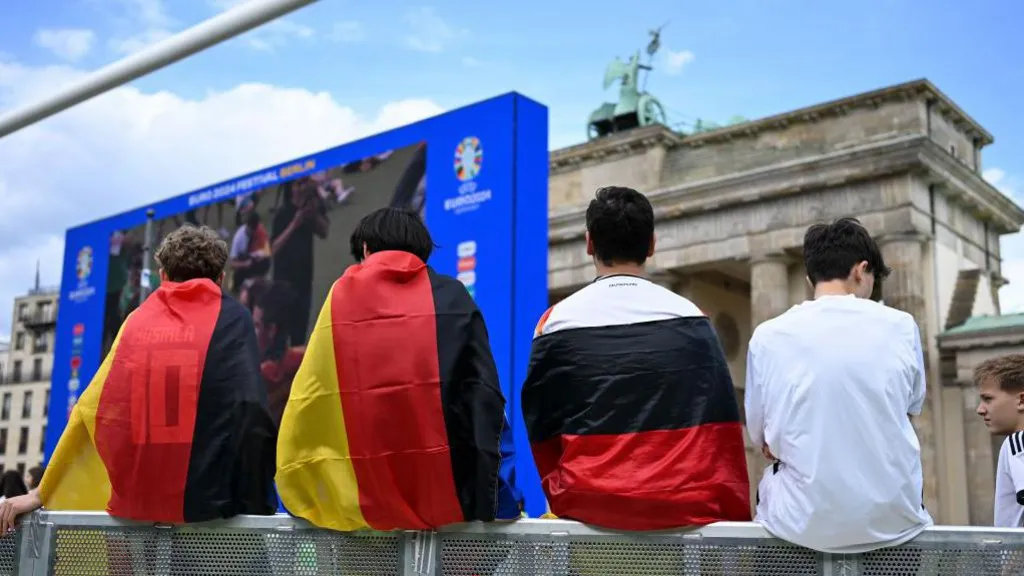Germany’s reputation for super-efficiency has taken a severe hit. As football fans flocked to cities across the country for Euro 2024, they encountered a transportation system that fell short of expectations. Trains, once believed to epitomize German punctuality and reliability, disappointed many.
Fans praised the “sensational” pricing deals that offered discounted or free local travel for ticket holders as part of a sustainability drive. However, the reality on the ground was less rosy. Thomas Concannon from the Football Supporters’ Association reported constant complaints from fans facing travel disruptions. He noted that the surprise stemmed from a “pre-conceived reputation about Germany that the trains run on time.”
Lindsey and Darren Ramskill from Goole in East Yorkshire, who attended six of England’s seven matches, encountered packed trains, stop-start services, and poor communication. “I’m not moaning about British trains anymore,” said Lindsey. “Ours are better.”
Another football supporter, Wiebe Wakker from the Netherlands, who travels frequently for work, was less shocked. He described his delayed journey out of Dortmund after the England v Netherlands semi-final as “unbearably hot” due to non-functioning air conditioning, leading him to abandon the train and take a taxi with some England supporters.
Within Germany, dissatisfaction with the Deutsche Bahn national rail operator is longstanding. Only 64% of long-distance trains ran on time in 2023, compared to 67.8% in Great Britain. Calls for significant investment are part of a broader debate about revitalizing Germany’s economy. The German transport lobby group Allianz pro Schiene highlighted that Germany spent €115 per person on railway infrastructure in 2023, ranking 10th among 14 European countries.
The inefficiency extends beyond the railways. Germany has struggled with modernization, hampered by insufficient investment and a slow adoption of digital solutions. Bureaucratic red tape further complicates everyday tasks. For instance, in Berlin, residents must make an in-person appointment to register a new home address, yet available slots are hard to come by.
Professor Hubertus Bardt from the German Economic Institute (IW) pointed out that railways have suffered from a piecemeal approach to repairs, causing delays and failing to address the root problems. While significant projects like the Frankfurt-to-Mannheim line renewal are underway, Professor Bardt argues for a comprehensive spending program to tackle widespread infrastructure issues, especially in western Germany.
Germany’s economic outlook is also bleak, with growth forecasts placing it at the bottom among G7 economies. The International Monetary Fund and the Organisation for Economic Co-operation and Development (OECD) project a mere 0.2% growth for this year.
The image of Germany as a bastion of efficiency, unrivaled industry, and punctuality persists internationally but has long been eroding domestically. Euro 2024 has exposed these cracks to a global audience, challenging the legend of German efficiency.


